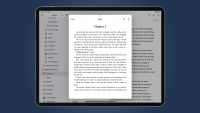New Publishing Imprint Listing: Engram Books
firstwriter.com – Tuesday June 7, 2022
Imprint to focus on memoirs, auto-biographies, and biographies – including books about the challenges of disabilities. Especially interested in books that will be uplifting for the disabled community; that will reach out to others and let them know they are not alone, that others have gone through similar issues; how to deal with those issues; where to find help - and similar.

18 of Our Favorite Books About the Craft of Writing
tor.com – Saturday June 4, 2022

Are you a writer? Do you like learning about the creative process, either for your own projects, or just cause you think it’s interesting? This post is about to make your day. As I’m sure you know, there is a booming industry of books on the art and craft of writing, from all sort of different authors, who cover all sorts of different angles. I’ve rounded up 18 of my favorites.
Let me start with one piece of my own advice: all of the books on this list are very good, and helpful, and if you’re a writer I think you should read them! BUT: What makes a writer is creating a space, as often as possible, to think and write. And that can mean many things! It can be typing into a notes app during your baby’s nap, it can mean an hour before work each day, it can mean sitting under a tree with a Moleskine and a fancy pen, it can mean one long writing session a week, or dictating during your commute, or staying up until 4AM writing fic.
Also read as much as possible, in as many genres as possible—and to that end, here’s a book list!

How to write a novel in Ulysses on iPadOS
techradar.com – Thursday June 2, 2022

Writing a book, whether it’s fiction or fact, is a challenging and daunting task, and it makes sense to use every tool at your disposal to make the job easier.
While traditional word processors have always been a popular choice, we now have apps more tailored to large and complex writing projects, and one of the premier examples is Ulysses.
Ulysses(opens in new tab) is a Markdown(opens in new tab) writing environment, which means you write in plain text, using some simple punctuation to apply styling. The syntax will be familiar to almost anyone who’s written a text message or a tweet; for example, you can surround a phrase with underscores for emphasis, use double-asterisks for boldface, or use hyphens to make a bulleted list. Ulysses also offers controls to apply the styling for you but it's all easy to learn.

Wallace Stegner and the Trap of Using Other People’s Writing
newyorker.com – Thursday June 2, 2022

For years, troubling charges—appropriation, plagiarism—have hovered over Wallace Stegner’s famous novel, “Angle of Repose,” the story of a mining engineer and his wife living in the American West during the late eighteen-hundreds. There’s no question that Stegner used the life of the writer Mary Hallock Foote as the basis for his novel, nor that he used passages of her work without attribution, but at first few people knew it. In 1971, when Stegner’s novel was published, Foote’s memoir was unpublished. When her book came out the following year, Stegner’s novel had won the Pulitzer Prize, and it was protected by a halo of esteem.
But charges began emerging in the late seventies. In 2000, in an introduction to the novel, Jackson Benson, Stegner’s biographer, defended Stegner’s inclusion of thirty-eight passages from Foote’s letters, “approximately 61 pages,” all without attribution. It’s “a brilliant tactic,” Benson says, that creates “an invaluable part of the novel” and provides “depth and authenticity.” As to Foote’s life, Benson says the family had encouraged Stegner to use the material, believing that Stegner would tell the story of Foote’s productive career and happy marriage. In a preface, Stegner wrote, “This is a novel which utilizes selected facts from their real lives. It is in no sense a family history.” But it was recognizably a family history—one that distorted the lives it described. More recently, a persuasive essay by Sands Hall, in the journal Alta, accuses Stegner of plagiarism, the appropriation of Foote’s life, and the slandering of her name. Instead of hewing to the historical facts, Stegner fabricates an adulterous liaison for the character based on Foote, a transgression that costs the life of a child and destroys her marriage. Some people who knew about Foote assumed that’s what happened in her own life, when it did not.

Maggie Shipstead on Dealing with Mistakes in Writing
lithub.com – Sunday May 29, 2022

Maybe five years ago I read a novel in which a man drowns in a lake, and, a few minutes later, his body is found floating on the water’s surface.
If any of my writer friends are reading this, they’re probably groaning because they’ve heard me harp on this example before. What can I say? Sometimes I’m irritating and pedantic. But here’s the thing: it doesn’t make any sense for that body to float. If bodies were inherently buoyant, no one would ever drown. For that scenario to work, the man’s lungs would have filled with water, pulling him under and killing him, and then, almost immediately, something — the condition of death? — would have sent his body rocketing back up to the surface, where, despite being heavier now than before, he floated. No. Bodies float because gases of decomposition eventually lift them. The process takes time: at least a couple days even in relatively warm, shallow water, longer in colder, deeper water. Many bodies never surface at all. But the image of the floating body is pervasive in our culture and our entertainment (“We’ve got a floater,” says one TV cop to another), so familiar that a writer may skip directly from drowning to floating without stopping to think.

How the Publishing World Is Muscling In on Hollywood Deals: For Authors, “The Future Is Multihyphenate”
hollywoodreporter.com – Thursday May 26, 2022

his June, when the Netflix film Spiderhead hits the streamer, something revolutionary will happen — but blink and you’ll miss it. Before the opening scene of the dystopian drama starring Miles Teller, Chris Hemsworth and Jurnee Smollett, the New Yorker logo will appear on the screen. The script is an adaptation of a 2010 George Saunders short story, published in the magazine under the title “Escape From Spiderhead.” The film was produced by Condé Nast Entertainment (CNE), one of the first major projects under the group’s new president, studio veteran Agnes Chu.
Spiderhead’s path to the screen is part of a new push to rethink the traditional page-to-screen pipeline — which insiders on both ends of the dealmaking equation say is meant to bolster the authors behind the IP Hollywood covets.
For decades, book agents would identify the upcoming titles on their publishing slates best fit for film or television, pitch to counterparts at the major Hollywood agencies, and then sit back as producers and film creatives picked the most promising projects and shepherded them the rest of way. “There had to be a better way to get authors a place at the table,” says Todd Shuster, co-CEO of Aevitas Creative. The lit agency has developed several pipelines to secure more autonomy for authors and their representation, including a first-look deal with Anonymous Content that allows literary agents to serve as producers. One fruit of this union was the 2020 Netflix movie The Midnight Sky, adapted from the novel Good Morning, Midnight by Aevitas literary agency client Lily Brooks-Dalton. Directed by and starring George Clooney, the film reached Netflix’s No. 1 spot in 77 countries, giving Shuster, who has a producer credit, the confidence that the model could work.

Morton Janklow, Groundbreaking Literary Agent, Dies at 91
variety.com – Thursday May 26, 2022

Morton Janklow, one of the nation’s most powerful literary agents who elevated the power of the profession in advocating for authors, died Wednesday morning of heart failure at his home in Water Mill, N.Y.. He was 91 years old.
Janklow’s clients included the likes of Sidney Poitier, Sidney Sheldon, Danielle Steel, Jackie Collins, Nancy Reagan and Ted Turner. His death was confirmed by publicist Paul Bogards to The New York Times.
Janklow began his career as a literary agent in 1972 when his client and friend William Safire asked him to help with a book he was writing about President Richard Nixon. The corporate attorney educated himself on the publishing industry and successfully negotiated a contract for Safire’s book. After the Watergate scandal broke, the book’s publisher attempted to back out of the $250,000 contract.
New Imprint Listing: Boathooks Books
firstwriter.com – Thursday May 26, 2022
Publishes books on boating of all kinds.

The one line that's missing from all the writing advice
bookriot.com – Tuesday May 24, 2022

I started writing as an adult in 2009. I’d scribbled many poems and “novels” as a child and teen, but I had a West Wing-based epiphany in my early 30s (it’s a long story) and started writing seriously then.
Alongside the joy of getting to know my characters and daydreaming a plot into existence, I also read a lot of books on the craft of writing. Studying, I could do. I know school isn’t for everyone, and that I benefit from a lot of white and neurotypical privilege, but I loved school. Looking back now, I think part of what I loved about it was the (mostly) reliable nature of it. I grew up in Belgium in the 1980s, and there was a lot of listening to teachers, making notes neatly in my exercise books, learning things by heart for tests and reciting them at the chalkboard. I was good at following rules, and I liked the fact that a certain kind of input meant a certain kind of mostly predictable output.
I knew, of course, that art is less predictable than that. It was also apparent early on as I started writing that I thought outside the box of what fiction, at least British and American fiction, requires to be considered publishable. But still, if pressed, I would have said that learning my craft and persevering would eventually result in publication. I knew that it might be a long road (five years, maybe!), but if I learned about how to submit to agents, I would eventually find my place in the publishing world.

New Literary Agent Listing: Maria Bell
firstwriter.com – Tuesday May 24, 2022

Drawn to adult literary fiction and YA that break conventions in form, voice and character. In both fiction and nonfiction, she’s partial to stories involving the natural world, queer identities, baseball, and all those that grapple with conflicts and truths from which most of us instinctively distance ourselves.
Get the free newsletter | Submit a news item or article | Get Writers' News for your website





